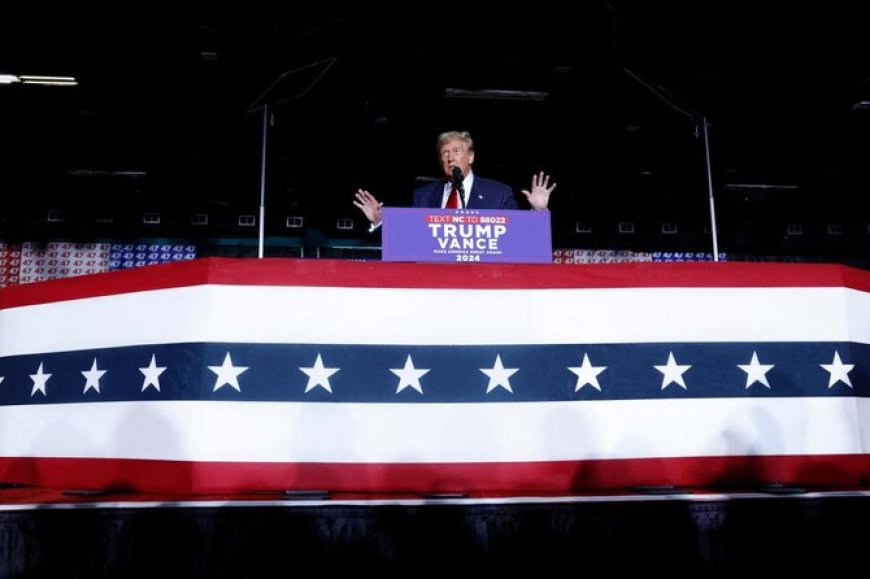Trump Campaign Accuses UK Labour of 'Foreign Interference' in U.S. Election

In a fresh twist to the U.S. presidential race, Donald Trump’s campaign has leveled serious accusations against the UK’s Labour Party, claiming "blatant foreign interference" in the 2024 U.S. election. The Trump campaign has lodged a formal complaint with the Federal Election Commission (FEC), demanding an immediate investigation into what it alleges are unlawful foreign national contributions by Labour to Kamala Harris’s campaign.
At the heart of the controversy is a now-deleted LinkedIn post from Sofia Patel, a senior Labour Party official, who revealed that nearly 100 current and former Labour staff members would soon be heading to the U.S. to assist in Harris’s campaign. Trump’s team seized on this, suggesting the Labour Party’s involvement crosses a line into illegal activity. The complaint points out that this could amount to direct foreign interference, a charge that echoes claims often thrown around in recent years regarding election meddling.
While U.S. elections are, without a doubt, a global spectacle, the involvement of foreign volunteers isn’t unheard of. In fact, Labour leader Keir Starmer downplayed the accusations while en route to Samoa, stating that his party’s volunteers have been engaging in U.S. elections for years. "They’re doing it in their spare time, they’re doing it as volunteers," he said, brushing aside the notion that Labour’s participation is anything new or untoward.
The accusations, however, come at a politically sensitive time. With U.S.-UK relations at a potential crossroads, the Trump campaign’s move to involve the FEC marks a significant escalation in diplomatic tensions. Trump’s accusation isn’t just about foreign volunteers; it strikes at the very heart of sovereignty and electoral integrity, especially given the U.S.’s history of fiercely protecting its democratic processes from outside influence.
This situation also highlights the fragile state of global political alliances. While Starmer has made concerted efforts to build a rapport with Trump, even meeting him at Trump Tower during a September visit to New York, this accusation may strain their burgeoning relationship. Starmer insists that Labour’s assistance is in line with past practices, downplaying the incident as nothing more than routine support for the Democrats, with whom Labour shares ideological affinities.
The Trump campaign’s complaint also plays into a broader narrative of distrust toward foreign involvement in U.S. elections. In recent years, U.S. politics has been marred by allegations of external interference, from Russia to China, which makes Labour’s involvement particularly controversial. By framing Labour’s support for Harris as part of a larger scheme of foreign interference, Trump’s team is doubling down on its nationalist rhetoric, which seeks to frame his opponents as beholden to outside interests.
Yet, this isn’t just about one party’s volunteers or even Labour’s actions alone. It speaks to the increasingly intertwined nature of global politics, where the borders between domestic elections and international influence become blurred. The very fact that foreign political operatives—whether volunteers or paid staff—can have a role in shaping the outcomes of elections thousands of miles away is a telling reflection of today’s interconnected world. However, whether this amounts to "foreign interference" in the strict legal sense is a different question altogether and one that the FEC will now have to investigate.
At its core, Trump’s campaign is likely using this incident to further its nationalist message, reinforcing the notion that outside actors are meddling in U.S. affairs. This accusation may energize his base, many of whom have become increasingly skeptical of globalism and outside influence. For Harris and the Democrats, it presents an unwanted distraction at a critical juncture in the campaign, forcing them to respond to claims of foreign involvement while trying to stay focused on domestic issues.













































